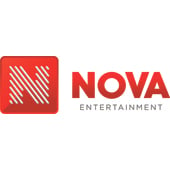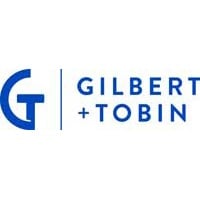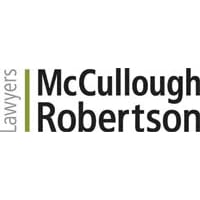

Head of legal and company secretary, privacy officer | NOVA Entertainment





Benjamin Willis
Head of legal and company secretary, privacy officer | NOVA Entertainment
What are the most important transactions and litigations that you have been involved in during the last two years?
Nova’s podcast partnership with Acast: at inception this strategic partnership created the biggest podcast player in the Australian market with over 3,000 podcast shows and in excess of 10 million monthly listens locally, and 170 million globally. Nova and Acast together set out to achieve a lead position in the rapidly growing digital audio sector, with a view to establishing the largest digital audio network, best in class ad insertion technology, analytics and native content opportunities for Australian advertisers.
The partnership introduced Acast to the Australian market at a time when Acast had already achieved great success in Europe and the US, utilising a model that provides brands and agencies with unique advertising solutions in podcasts – something that had been missing in the Australian market. Together Nova and Acast look forward to continuing to bringing the best possible podcast content to the Australian market.
Nova also recently suffered an unauthorised data disclosure incident. As both the head of legal and privacy officer for the Nova Entertainment Group, my involvement in the management of the data incident, not limited to notification of affected individuals, engagement with external cyber experts, management of shareholder concerns and enquiry, and liaisons with the Privacy Commission, was challenging, complex and immense. At the core of this undertaking was the enduring and consistent objective of putting the interests of affected individuals first, and ensuring we learnt valuable compliance and governance insights from the incident.
How do you suggest in-house lawyers build strong relationships with business partners?
The key to successfully practicing in-house generally, and to building strong, effective relationships with business partners in particular, is in each case predicated upon understanding the strategic commercial outcomes internal stakeholders are seeking and determining how best to support delivery of those strategies.
In-house lawyers have an obligation to form enduring, effective relationships with business partners, to ensure a symbiotic co-existence of legal and commercial. In my experience, this is best achieved through open and frequent dialogue, understanding and being sympathetic to the inherent pressures of a particular stakeholder, respecting the subject matter expertise of your commercial colleagues, and knowing when it is and isn’t useful to contribute substantively.
What “legal tech” products do you currently utilise, and do you foresee implementing more of these in the near future?
The legal function at Nova has been traditional in its approach to the use of technology – meaning the use of “legal tech” products was limited to the Microsoft Office suite!
However, that approach is no longer tenable, and in congruence with the desire of the Nova Group to take advantage of technology products and platforms that improve efficiencies and provide for seamless growth and development, the Nova legal function is increasingly looking to introduce legal tech products that compliment workstream demands.
The current focus for the Nova legal team is the introduction of a group-wide document management system with broader capabilities than simply providing for the storage of documents, online training module delivery platforms, discovery and due diligence AI, and automated trade promotions.
What do you predict will be the biggest change in the legal market in your sector over the next few years?
Automation and AI will underpin the biggest changes to in-house legal practice in coming years – in media as much as in other sectors. Central to this evolution will be the implementation of technologies and business practices that simplify and remove the burden of low risk/low value, high volume workstreams such as the preparation and provision of basic contracts, and outputs such as trade promotion terms and conditions. The continued use of discovery and due diligence AI software will also remove the demand on lawyers to trawl through large tranches of materials, leaving more time to focus on critical commercial workstreams.
Another significant change will be the further transition of the legal counsel role away from one that solely or predominantly provides SME legal advice, shifting the role to a more broadly and generally commercial role.
What do you feel are the most effective techniques for getting the most out of external counsel, in terms of how to instruct them?
Effective relationships with external counsel are almost solely founded upon the intersection of providing clear, definitive instructions and an external counsel’s willingness to understand the inherent components and challenges facing your business.
In every case when instructing external counsel, it is essential to – at minimum – cover precisely the outputs you require, such as advice (and if so how refined or comprehensive that advice needs to be), a letter, research or other such product and/or service. This includes precisely what you do not need; a costs estimate; an indicative timeline for delivery of the expected service; and confirmation that the instructions are understood and agreed.
An additional technique is the maintenance of ongoing dialogue in the post-delivery period of instructions. That dialogue allows for the development of rapport, and as necessary the updating of instructions.
As your company’s privacy offer, what would your main advice to peers concerned about “getting on top” of data privacy and other related issues?
The most important aspect of managing a company’s data privacy governance is ensuring that all decisions pertaining to the collection, storing and handling of data (including personal information) are made with due consideration for: Why the data was collected, what use(s) the individual providing the data has consented to, what needs to be done to ensure the respectful and secure handling of the collected data; and how do we as a business, and in particular functional groups, establish and cultivate an enduring relationship of trust with individuals providing their data.
The exchange of data is fundamentally a transaction of trust and it is incumbent upon any company collecting data, particularly personal information, to ensure that trust is not misplaced, misunderstood or neglected.
For stakeholders therefore, to “get on top” of data privacy is to understand the fundamentals of data handling, be they the underlying commercial strategies, but also importantly what legal, regulatory and ethical obligations apply. It is incumbent upon the privacy and legal teams to ensure stakeholders are provided with the guidance, training, and support they need to achieve this outcome.